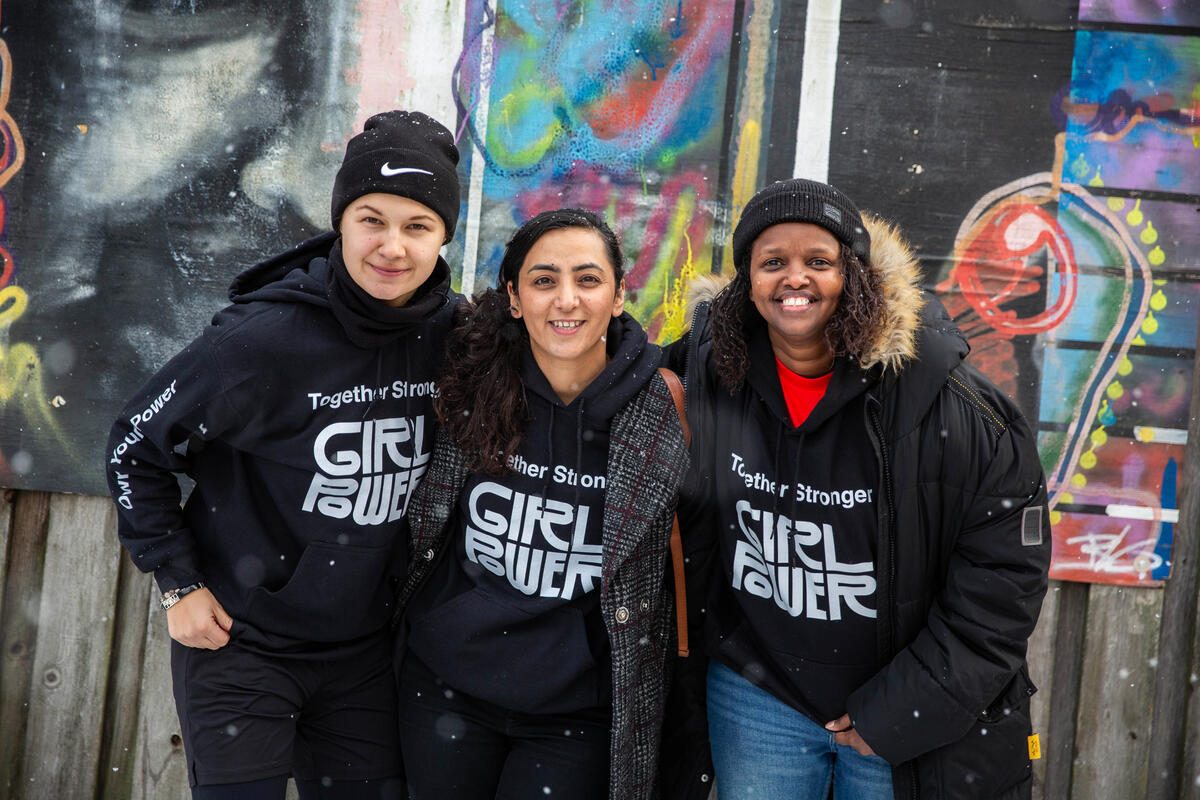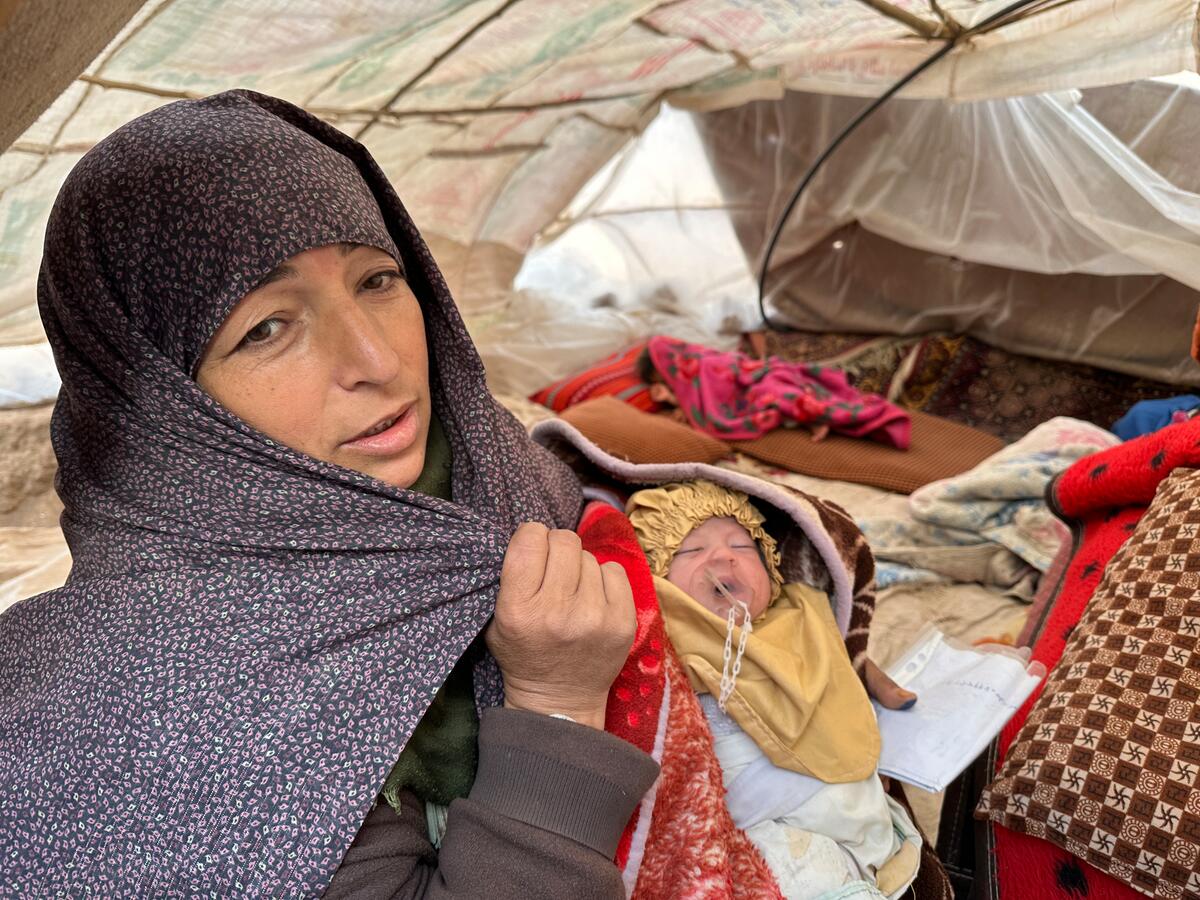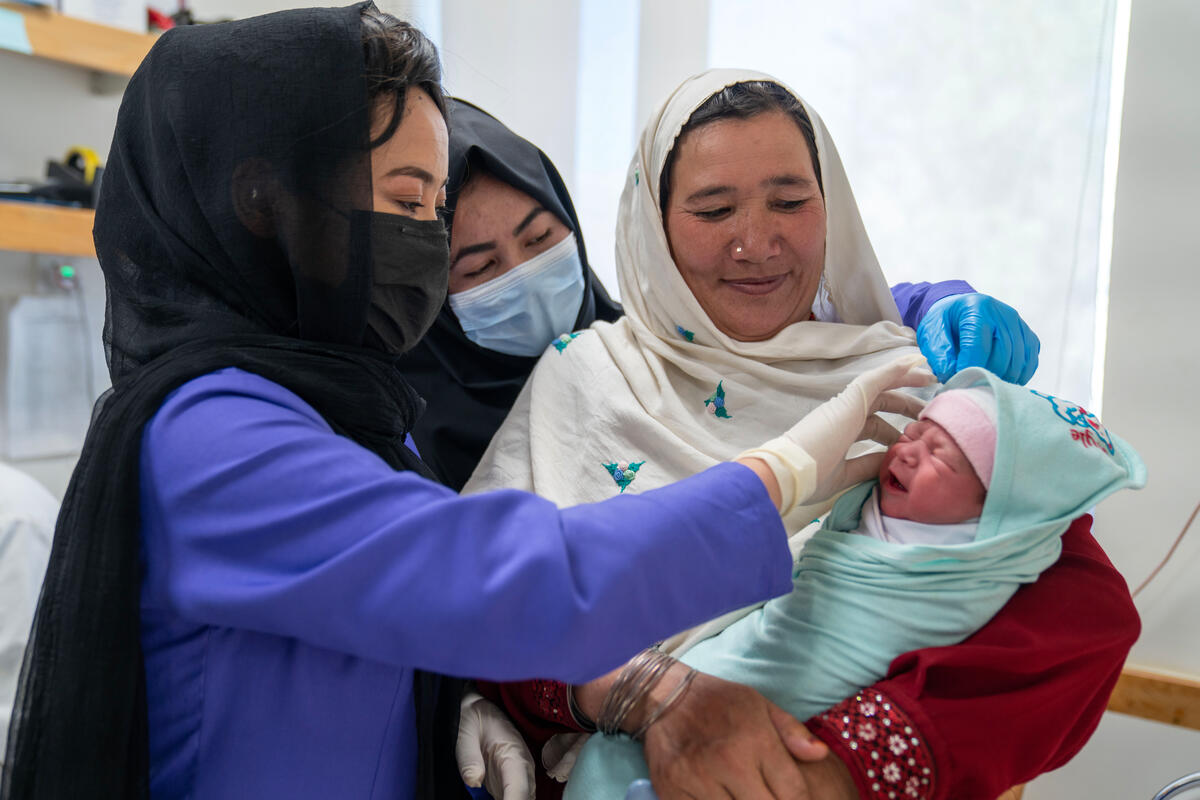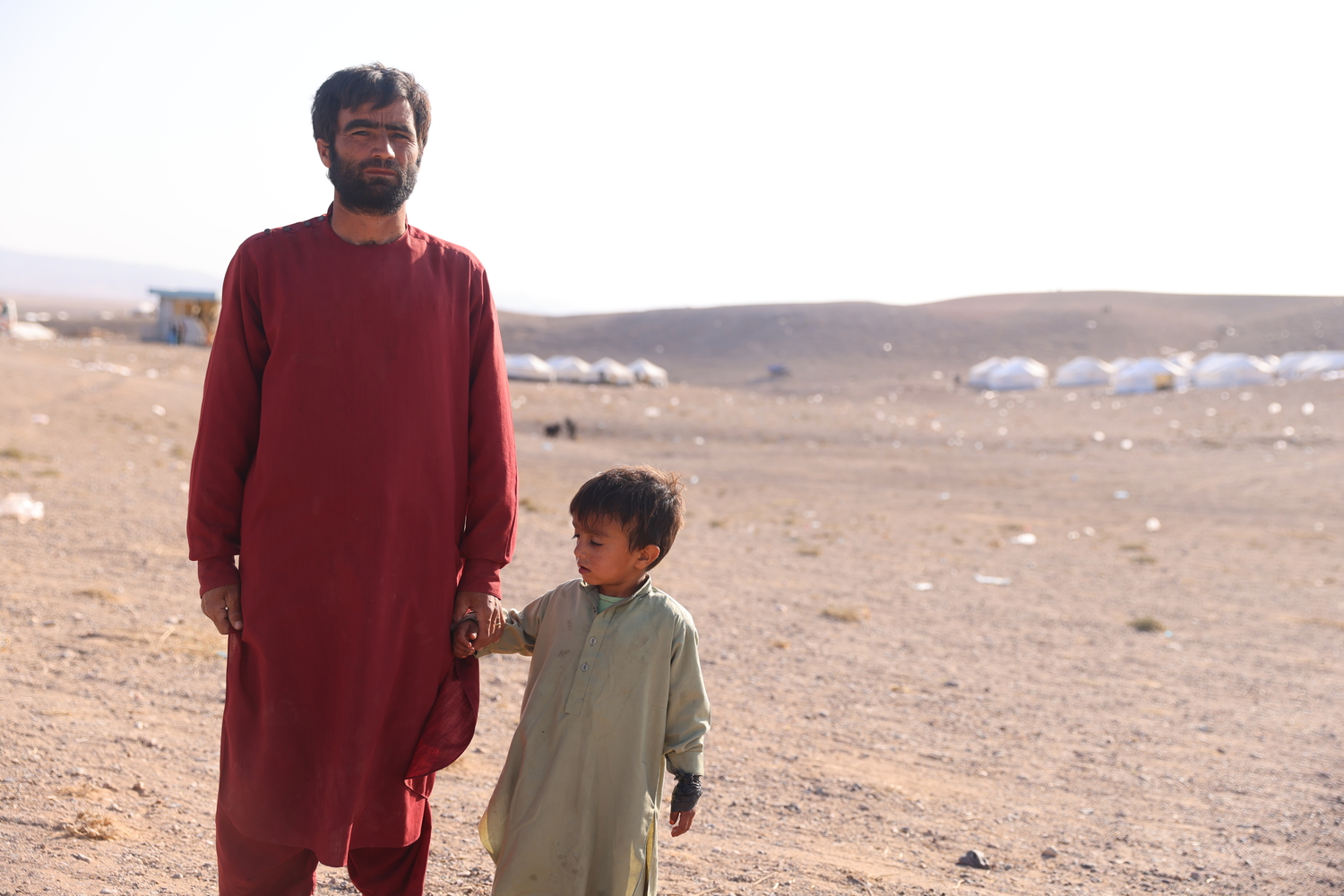Afghanistan Humanitarian Update No. 47
Afghanistan Humanitarian Update No. 47
At a Glance:
- UNHCR opens fourth Afghan office
- Returns begin to Shomali Plain
- Newly arrived Afghans still massed at border site
- New camps for ex-Jalozai refugees
- Information campaign reaches out to Afghans
UNHCR opens fourth Afghan office
UNHCR opened its fourth office in Afghanistan on Sunday with the deployment of five international staff to Jalalabad. UNHCR's expanded presence in Afghanistan will help the agency to better monitor returnee movements and target distribution of relief aid.
The region around Jalalabad, home to many of the some one million refugees living in Pakistan's North-West Frontier Province, is a key region for the UN refugee agency. UNHCR plans to assist with its partners many of the area's internally displaced persons and eventually help those coming home. Security problems have plagued the area around Jalalabad over recent months, complicating internal travel and delaying the re-establishment of an UNHCR office there.
UNHCR currently has four offices open in Afghanistan: Kabul, Herat, Mazar-i-Sharif and the newly opened Jalalabad office. The only key area still not covered by UNHCR is the southern region around Kandahar, where security problems hamper relief activities.
Despite, security problems and tenuous humanitarian presence in some areas, an estimated 80,000 Afghans have returned to Afghanistan since the end of November 2001. Some 45,000 persons have repatriated from Iran, with daily returns via the Dogharoun crossing numbering between 1,000 and 2,000 persons on some occasions. The remaining 35,000 have returned from Pakistan, though many of Pakistan's remote crossing points with Afghanistan are difficult to monitor.
Returns underway to Shomali Plain
With assistance from UNHCR and partner agencies, some 1,000 displaced Afghan families - about 5,000 people - have now returned to the war-ravaged Shomali Plain from their temporary homes in the Panjshir Valley. Many of the recent returnees have gone back to the Estalif district overlooking the rich Shomali Plain. Once known as the breadbasket for the capital, Kabul, the area today is heavily mined and devastated by years of war.
UNHCR is co-ordinating the return of the displaced Afghans to the Shomali Plain, while the International Organization for Migration (IOM) is providing transport for returnees. A variety of other relief partners, including the World Food Programme (WFP), UNICEF, ACTED, CARE, AMI and others are also involved and provide assistance as the returnees get re-established.
The mainly ethnic Tajik returnees are seeing their destroyed houses for the first time since they fled the region three years ago when the Taliban crushed opposition groups operating in the region. They say they are happy to finally be returning home, but they are also shocked by the level of destruction. Little more than broken walls are all that remain of many homes and bazaars.
On arrival, returnees are provided with winterised tents that they erect in sites that have been cleared of mines. The distribution of returnee assistance packages, including heaters, is underway for returnee families in Shomali's Bagram, Estalif and the Qala Baugh districts. Shelter kits will also be distributed to those in need.
Although transportation and initial return assistance are well underway, much more needs to be done to help revive the communities scarred by war. UNHCR is working with its partner agencies to set up medical clinics, agricultural rehabilitation projects, and water and sanitation repairs to help rebuild the devastated communities of the Shomali Plain.
Newly-arrived Afghans still massed at border site
Some 3,000 Afghans who crossed Pakistan's border with Afghanistan late last week are still massed on the edge of UNHCR's Killi Faizo transit camp just inside Pakistan's south-western Chaman border.
Pakistan has not yet permitted them to enter the Killi Faizo compound. However, UNHCR has been providing the group with emergency assistance and high protein food biscuits from WFP stocks.
The Afghans, who crossed from the southern Afghan border town of Spin Boldak, cite the lack of international relief aid, fear of new bombing raids, and the devastating effects of a three-year drought as reasons for leaving Afghanistan. The new arrivals said that more people may be waiting further inside Afghanistan for a chance to leave, but there were no reliable figures. At the same time, thousands of Afghans continue to return to their homeland, including some 4,000 who repatriated via the Chaman border last weekend.
In the Chaman area, UNHCR cares for more than 17,000 recently-arrived Afghans at the Roghani camp and more than 8,000 at the nearby Landi Karez site, while some 2,800 await relocation from the Killi Faizo transit camp. From Balochistan Province's capital city of Quetta, UNHCR has relocated more than 34,000 Afghans refugees to the Mohammad Khail camp and the recently-opened Lejay Karez sites some 75 kilometres away.
Afghans at the five recently-constructed UNHCR camps near Quetta and Chaman are provided with tents, plastic tarpaulins, blankets, kitchen sets, jerry cans, heating and cooking stoves and hurricane lanterns. Health facilities, water and sanitation facilities are provided at every site, and WFP distributes food every two weeks. The United Arab Emirates Red Crescent cares for more than 9,900 Afghans at a nearby site it constructed near Chaman.
Aid workers say the new movement toward Pakistan by desperate Afghans stems from a worsening humanitarian situation in southern Afghanistan. Unlike the north-west of the country, most of southern Afghanistan continues to be largely off-limits to humanitarian agencies because of the fragile security situation.
Until conditions stabilise in Afghanistan and the winter passes, UNHCR is not encouraging the return of refugee families. The agency says organized repatriation will likely begin in the spring, when the political and military situation may be more stable and returnees can make use of the warmer weather to begin repairing their homes.
Many hundreds of thousands of Afghans had worked outside their homeland even prior to the 1979 Soviet invasion, mainly serving as labourers in factories, farms and seaports in neighbouring Iran and Pakistan. These Afghans may not opt to repatriate and their employers and host governments may wish to look at ways of regularising their status.
New camps for ex-Jalozai refugees
There are currently some 95,000 newly arrived Afghans settled in nine UNHCR-assisted camps in Pakistan split between the south-western Balochistan province and the North-Western Frontier Province. Some 200,000 Afghans are estimated to have entered Pakistan since last September, most living with relatives in long-time refugee settlements or in urban areas.
On Tuesday UNHCR staff in Pakistan's North-West Frontier Province relocated more than 1,800 Afghans to new camps, including some 1,000 recent arrivals from Jalozai and more than 800 undocumented Afghans living in Peshawar city who came forward seeking UN assistance and protection in the recognised camps.
In recent days, UNHCR staff in the area opened two more agency camps for new Afghan refugees. On Monday, 179 ethnic Hazara refugees were transferred to Basu refugee camp, where UNHCR is caring for Shi'ite Muslim refugees who feel uncomfortable in the mainly Sunni Muslim-dominated refugee camps. A day earlier, the UN refugee agency opened the Shelman refugee camp, also in North-West Frontier Province, with the transfer of more than 1,000 Afghans from the makeshift Jalozai refugee camp on the outskirts of Peshawar.
Some 20,000 refugees have been relocated from Jalozai since UNHCR was given permission to begin shifting people from the squalid site beginning last November. Another 2,000 Afghan refugees living freely in Peshawar who came forward seeking UN aid have also been shifted to the recently-opened UNHCR camps.
Elsewhere in North-West Frontier Province, Kotkai camp, the first of the new sites opened late last year, now shelters more than 13,000 Afghans. The Old Bagzai camp has more 4,300 newly relocated Afghans.
Information campaign reaches out to Afghans
As the situation in Afghanistan continues to improve, UNHCR is stepping up efforts to provide refugees and displaced people with factual information about conditions in their country. Staff deployed in expanding operations in Afghanistan are regularly feeding materials to UNHCR offices in neighbouring Pakistan and Iran which are then processed and fed mainly to the Dari and Pashto services of international and local radio networks.
Following the events of September 11, UNHCR increased its mass information activities in the Afghanistan region, setting up a network of reporters who are mainly Afghan refugees themselves. Their main task was to support the BBC's Pashto and Dari services, which added a 15-minute, twice-daily humanitarian component to its news and current affairs programme in November. Most Afghans listen to the BBC, especially its New Home New Life programme, which is hugely popular.








